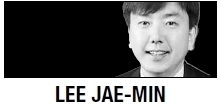The Los Angeles Times on Aug. 9, 2004, featured a rare reunion. In Santa Ana, California, 200 Vietnamese-Americans wholeheartedly welcomed a retired Korean commercial vessel captain Jeon Je-yong. Jeon was the captain of Gwangmyeong 87 that rescued 96 boat people in November 1985 in South China Sea.

Upon encountering the people adrift in the sea, he immediately contacted the company headquarters in Busan but the order from the company was not to get involved in the refugee issues: Understandably, since Korea at that time faced political and logistical consequences from the possibility of an increasing influx of boat people from Vietnam. Knowing that the people on a small ferry would soon perish at sea, Jeon decided to disobey the company instructions and rescue the refugees. When his vessel arrived in Busan with the refugees on Nov. 29, 1985, harsh investigation and ultimate dismissal from his position awaited him.
The 96 Vietnamese people were accommodated in the Busan refugee camp for several months before they headed to the United States and other countries to seek political asylum. Those who settled in the United States -- never forgetting Jeon’s courage and personal suffering -- tracked him down and found him living in Tongyeong, Gyeongnam Province. They then invited him to the United States with airfare and lodging. Then came the big reunion in the summer of 2004. Those rescued and their descendants did not forget the person who extended his hand at the crossroads of their life and death. His story has been featured by many humanitarian journals, including one issued by UNHCR.
Even today refugees are still risking their lives in their escape across the Mediterranean and across the borderlines, to reach Europe. They still sail on packed, small ferries or hide themselves in steel cargo containers in the back of trucks, with their fingers crossed. Nonetheless, from the receiving end, the influx of refugees has been regarded as a social problem, particularly at the time of an economic downturn. Even if they make it to their destination, the welcome is anything but enthusiastic.
Finally, the continuing stories of those who perished in the middle of their escape have rekindled the global attention to this tragedy. Due to the growing concern over the plight of the refugees, most vividly captured by the picture of a drowned toddler, the European Union has agreed to set quotas for refugees to be accommodated by individual member states. This is a laudable development to address the exigencies of the situation.
More fundamentally, this issue is too grave to be left in the hands of individual states. With the increase of the cost and burden of accommodation over time, these good Samaritan countries may well see their goodwill start to wither. After all, what is needed is a more systematic framework including how to process refugees, how to help them settle down, and, most importantly, how to pay for it all. The cost and burden should be borne by the global community.
Some people migrate -- legally and illegally -- to find better places for economic reasons, while others flee their hometowns simply to stay alive. The latter category of refugees deserve a different consideration. This is not simply an immigration issue, but rather a humanitarian one. Hands should be extended to rescue them from broken ferries and suffocating containers.
At the end of the day, when the lives of people are at stake, humanitarian consideration should trump all other considerations. The helping hands extended at the worst time of lives will never be forgotten -- like the hands of captain Jeon.
By Lee Jae-min
Lee Jae-min is an associate professor of law at Seoul National University. -- Ed.








![[Hello India] Hyundai Motor vows to boost 'clean mobility' in India](http://res.heraldm.com/phpwas/restmb_idxmake.php?idx=644&simg=/content/image/2024/04/25/20240425050672_0.jpg&u=)









